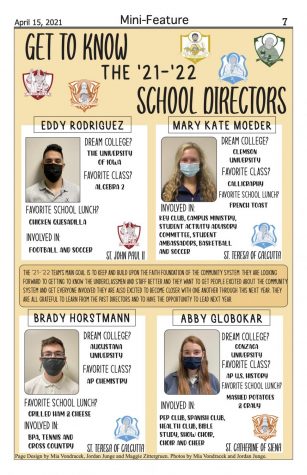Scandal in the Catholic Church
When I learned about the most recent reports of sex scandal in the Roman Catholic Church, like many others, I was disgusted. The Church has had countless problems with sexual abuse in the past, but it has only just been revealed how much was known by Church authorities– and subsequently covered up.
To briefly summarize the newest reports: It was revealed that over 300 priests from 6 Pennsylvania archdioceses had been molesting children and teenagers for decades. While the exact number of victims will remain unknown, it is certain at least a thousand minors were targeted.
Reports also brought to light a Hollywoodesque system of several bishops using their power over seminarians to extract sexual favors. Rather than an adult taking advantage of a child, this situation revolved around a power abuse between superiors and adult seminarians.
Perhaps the most impactful part of whole scandal was the systematic cover-up and silence from the Vatican. Additionally, the Viganò report has caused great unrest, in which former nuncio to the United States Archbishop Carlo Maria Viganò claimed that even the Pope was aware of sex abuse by the former cardinal Theodore McCarrick and still allowed his promotion. The
Pope has not yet released an official statement addressing this accusation. With Bishops taking sides, the laity is bombarded with statements bashing and supporting the Pope and must sort between reliable and unreliable sources.
Processing the vast amount of information available on the topic is not easy, but it boils down to wariness and mistrust. The Magisterium is supposed to guide us in our faith and live in persona Christi. When it seems we can no longer rely on the ordained to live holy lives, the authority of the Church is questionable. These priests and bishops show how power can be abused. It is horrific they failed to live lives that reflected their position.
In spite of recent events, it is important to recognize that the Church is not reflected in those who do not uphold its teachings. Though a fraction of ordained individuals have participated in crimes, so many continue to live holy lives. While the authority of the Church is not perfect, it is important to rebuild trust between parishioners and clergy. It is natural to be angry and suspicious of the Church right now, but we cannot abandon Her.
Healing from these tragedies will be difficult. Personally, I have had trouble discerning how I feel and what I believe about the scandal, but despite this, I still have hope for the future of the Church. There have been efforts made to incorporate more moral theology into the seminary curriculum. Previously concealed information on the matter has been made accessible to all and groups have been put together to help with prevention and education. All are effective ways to begin a change in the Church, but how can we, as the laity of the Church, respond? Discussing and becoming educated about the matter is a start. Understanding the concept of clericalism is another. It is equally important to promote a culture that allows victims to come forward immediately and without judgement. During this dark time, we hope to stay faithful to the teachings of the Church. Pray for the victims, that they may find comfort and healing. Pray for their abusers, that they may be redeemed by God. Let us not lose sight of Him in light of this tragedy.










